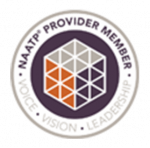Glendale, AZ, is facing a significant challenge when it comes to substance abuse. According to the Arizona Department of Health Services, over 36% of Glendale residents struggling with substance use disorder reported issues involving both alcohol and drugs. This alarming statistic underscores the need for effective addiction treatment centers in the area. If you or a loved one is seeking help, this guide will provide essential information about drug rehab options, treatment types, and valuable resources available in Glendale.
Understanding Substance Abuse: An Overview
Substance abuse is a complex condition characterized by an individual’s inability to stop using drugs or alcohol despite the harmful consequences. Addiction can sever relationships, disrupt careers, and inflict severe damage on physical health. Understanding the cyclical nature of substance abuse and recognizing its risk factors is the first step to seeking treatment.
Common Types of Substance Abuse
In Glendale, the most prevalent substances abused include:
- Opioids: Prescription painkillers and heroin dominate the landscape of opioid addiction.
- Alcohol: Many individuals turn to alcohol as a coping mechanism, leading to dependency.
- Stimulants: Drugs like cocaine and methamphetamine contribute to rising addiction rates.
- Marijuana: With its growing legalization, use among younger demographics has surged.
What to Expect in Drug Rehab Programs
Choosing a drug rehab program in Glendale is a crucial decision that can influence recovery success. These programs typically consist of several key components:
Assessment and Evaluation
Before any treatment begins, individuals undergo a comprehensive assessment to determine the severity of their addiction and tailor a treatment plan suited to their unique needs. This step involves a physical and psychological evaluation, often administered by trained professionals.
Detoxification
Detox is often the first stage of treatment and involves allowing the body to eliminate drugs or alcohol. Medical supervision is critical during this phase to manage withdrawal symptoms safely. Detox can last from a few days to several weeks, depending on the substance and the individual’s health.
Behavioral Therapies: Tackling the Root Causes
Once detoxification is complete, varying methods of behavioral therapy are employed to address underlying issues that contribute to substance abuse.
Cognitive Behavioral Therapy (CBT)
CBT focuses on altering negative thought patterns and behaviors related to drinking and drug use. By identifying triggers and developing coping mechanisms, individuals can better manage stress and avoid relapse.
Motivational Interviewing
This person-centered approach helps individuals enhance their motivation to change by exploring their ambivalence towards treatment. It fosters a collaborative relationship with therapists who guide them toward recovery.
Group Therapy
Group therapy allows individuals to share experiences and learn from others facing similar challenges. It provides a supportive environment where patients can realize they’re not alone in their struggles.
Aftercare and Support Programs
Recovery doesn’t end with the completion of a rehab program. Aftercare resources are essential for maintaining sobriety and preventing relapse.
Sober Living Homes
Sober living homes offer a structured, supportive environment for individuals transitioning out of rehab. These facilities encourage accountability and provide a stable atmosphere while residents adapt to life outside of treatment.
Continuing Counseling and Support Groups
Support groups such as Alcoholics Anonymous or Narcotics Anonymous provide continued support for recovering addicts. These networks are invaluable in offering community connections and motivation to maintain sobriety.
Top Addiction Treatment Centers in Glendale, AZ
If you or a loved one is seeking help for drug or alcohol addiction in Glendale, the following treatment centers have established reputations for effective care:
1. Aurora Behavioral Health Center
Aurora Behavioral Health Center offers comprehensive addiction treatment services, including inpatient and outpatient programs. Their multidisciplinary team focuses on individualized treatment plans tailored to each patient’s needs.
2. Phoenix Recovery Center
Located nearby, Phoenix Recovery Center specializes in providing a holistic approach to recovery, integrating therapies such as yoga, meditation, and art therapy along with traditional treatment methods.
3. Valley of the Sun Behavioral Health
This facility offers a variety of services, including dual diagnosis treatment for those dealing with mental health issues alongside addiction. Their compassionate team ensures that all patients receive personalized care.
4. Foundations Recovery Network
Foundations Recovery Network is known for its commitment to evidence-based practices in addiction treatment. They provide residential treatment, outpatient services, and support designed to meet clients’ unique needs.
5. Community Medical Services
Specializing in medication-assisted treatment, Community Medical Services offers a multifaceted approach to recovery through the use of methadone and buprenorphine where necessary, accompanied by counseling and support services.
6. Desert Cove Recovery
Desert Cove Recovery focuses on a personalized approach to treatment, emphasizing psychotherapeutic methods and outdoor therapies that promote healing through nature and community.
FAQs: Your Questions Answered
- What is the duration of a typical drug rehab program?
The length of rehab programs varies; they can last anywhere from 30 days to several months, depending on individual needs and the severity of addiction. - Are there outpatient options available for drug rehab in Glendale?
Yes, many treatment centers provide outpatient programs, allowing individuals to attend treatment while continuing their daily lives. - What types of insurance typically cover drug rehab services?
Most health insurance plans provide some level of coverage for addiction treatment. It’s best to contact your insurance provider to understand your benefits. - Can family members participate in treatment?
Many programs offer family therapy sessions, allowing loved ones to engage in the recovery process and learn effective support strategies. - Is drug rehab effective for long-term recovery?
While the effectiveness can vary, evidence shows that comprehensive treatment programs significantly enhance the likelihood of maintaining sobriety in the long term.
In conclusion, drug abuse is a serious concern in Glendale, AZ. Fortunately, a variety of treatment options and support systems are available to help individuals reclaim their lives. If you or someone you know is struggling with addiction, it’s crucial to reach out for help. The recovery journey is challenging but entirely possible with the right resources and support.
Nearby Cities
| Phoenix |
| Mesa |
| Chandler |
| Gilbert |
| Scottsdale |
| Tempe |
| Tucson |
| Yuma |





